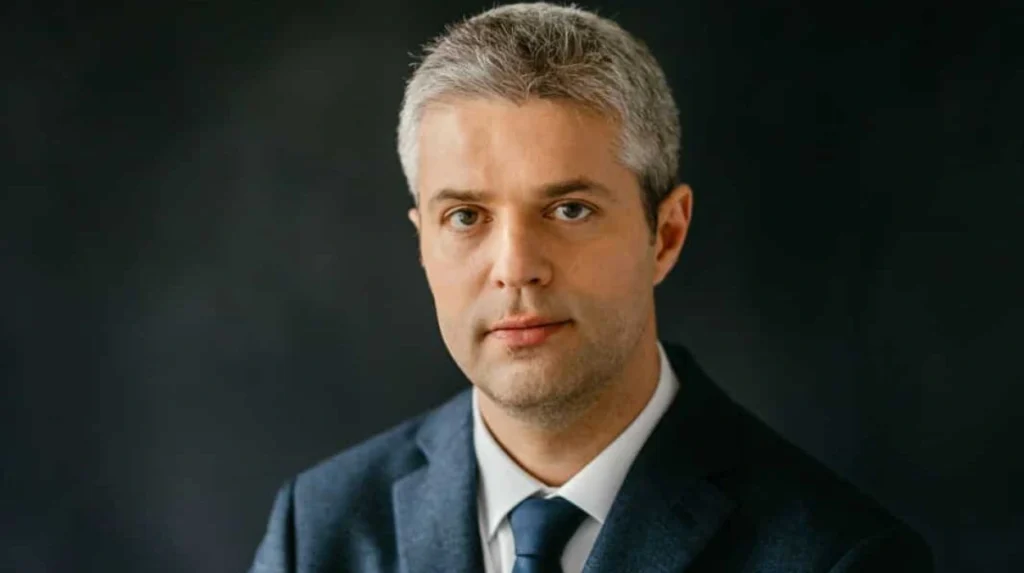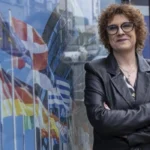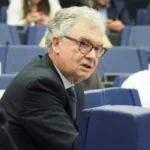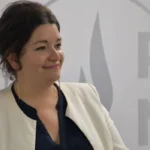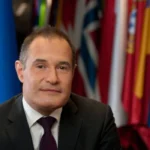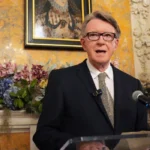The indefinite custody of Blagomir Kotsev, Mayor of Varna, has triggered a strong response from Members of the European Parliament (MEPs), who have called for sanctions against Bulgaria, accusing the government of political repression. Kotsev, a key opposition figure from the party “We Continue the Change – Democratic Bulgaria,” was detained on charges of embezzlement related to public procurement contracts.
On September 23, following an appellate court decision to extend Kotsev’s detention, the liberal group Renew Europe in the European Parliament wrote to the European Commission demanding the suspension of EU payments to Bulgaria. The group argued that the arrest and detention of Kotsev are symptoms of a government weaponizing anti-corruption institutions to suppress political opponents, thereby undermining democratic norms and the rule of law.
Political Context and Charges Against Kotsev
Blagomir Kotsev was arrested in early July 2025, accused of embezzling public funds from a catering contract, a charge he vehemently denies. His defense has highlighted irregularities in the case, including coerced witness testimonies, and dismissed the prosecutors’ evidence presented during the appellate hearing as irrelevant and part of a smear campaign.
Renew Europe MEP Valerie Aye, chairing the group, condemned the politicization of Bulgaria’s anti-corruption commission, stating that the institution, designed to guarantee transparency and institutional progress under the EU Recovery and Resilience Facility, has become a tool for political intimidation. She emphasized that Bulgaria is requesting €653 million in EU recovery funds while failing to uphold judicial independence and allowing political persecution of opposition figures like Kotsev.
Calls for Suspension of EU Funds
Renew Europe’s official communication warned the European Commission that ongoing political repression in Bulgaria directly contravenes the conditions for receiving EU support. Valerie Aye wrote, “The European Union created the Recovery and Resilience Facility to finance democratic reforms, not to facilitate political repression,” asserting that the disbursement of funds should be suspended until Bulgaria restores institutional independence.
This sentiment was echoed by ALDE, the Alliance of Liberals and Democrats for Europe, which also requested an immediate suspension of EU payments to Bulgaria. Assen Vassilev, chairman of the Bulgarian party “We Continue the Change,” decried the situation as a “big D’s whim,” warning that billions in EU aid might be withheld as a consequence of politically motivated justice, harming Bulgarian citizens and businesses alike.
Protests and Public Response in Bulgaria
The detention of Mayor Kotsev has sparked widespread protests across Varna and other parts of Bulgaria. Supporters have rallied in demanding his release, with many blocking key intersections near the municipal building. Demonstrators have carried signs proclaiming, “The law is not a weapon,” conveying their opposition to what they see as selective justice.
Kotsev himself addressed supporters amidst his detention, promising resolve by stating, “I will not betray Varna,” and urged the prosecutor’s office to release him so he could continue serving the city. His personal defiance has become a symbol for broader discontent with Bulgaria’s political and judicial trajectory.
Renew Europe’s Position on Rule of Law in Bulgaria
The Renew Europe group has been outspoken about the deteriorating rule of law in Bulgaria, describing the arrest as part of a larger pattern of state capture where influential judicial and prosecutorial bodies serve political ends. Valérie Hayer, president of Renew Europe, declared,
“Ongoing attacks on democratic standards and the blatant use of justice institutions to target political opponents in Bulgaria are deeply alarming. This is a direct assault on European values.”
Renew Europe has called for an urgent discussion at the highest institutional levels to address the rule of law issues in Bulgaria. Hayer further insisted, “Europe cannot remain silent when the rule of law is threatened within our Union,” signaling a strong commitment to democratic principles and institutional independence.
Impact on Bulgaria’s EU Relations and Financial Support
The political crisis surrounding Kotsev’s detention casts a shadow over Bulgaria’s relations with the European Union, especially regarding financial assistance. Bulgaria’s bid for the next tranche of €653 million from the EU’s Recovery and Resilience Facility is now under scrutiny due to these controversies, with the European Commission considering the requests for suspension carefully.
European Commission spokespeople confirmed receipt of letters from liberal groups in the European Parliament demanding a halt to payments until credible evidence justifies Kotsev’s detention. This development adds pressure on the Bulgarian government to address complaints about the independence of its anti-corruption and judicial systems.
Broader Political and Legal Implications
The case has amplified concerns about the independence of Bulgaria’s judiciary and the integrity of its democratic institutions. Many European observers see the detention of Kotsev as emblematic of broader systemic problems, warning that if democratic norms are undermined in one member state, it threatens the cohesion and credibility of the entire European Union.
François Decoster, president of the Renew Europe group in the European Committee of the Regions, stressed the gravity of the situation by stating,
“If what happened to Mayor Kotsev can happen to any democratically elected city mayor, it means it can happen to any Bulgarian citizen.”
He urged Bulgarian authorities to provide credible evidence for the arrest or risk severely damaging local democracy and trust in the rule of law.
The extended custody of Varna Mayor Blagomir Kotsev and the ensuing calls for sanctions from the European Parliament signal a critical juncture for Bulgaria in maintaining its democratic standards and relations with the European Union. With protests continuing and EU institutions weighing the suspension of crucial funds, the situation underscores the complex intersection of justice, politics, and European integration.
As Renew Europe and other political forces press for immediate action and transparency, the future of Bulgaria’s political environment hangs in the balance, symbolizing a broader test of judicial independence and the protection of democratic values within the EU 28. The coming weeks will be decisive in shaping not only Kotsev’s fate but the trajectory of Bulgaria’s standing in Europe.

